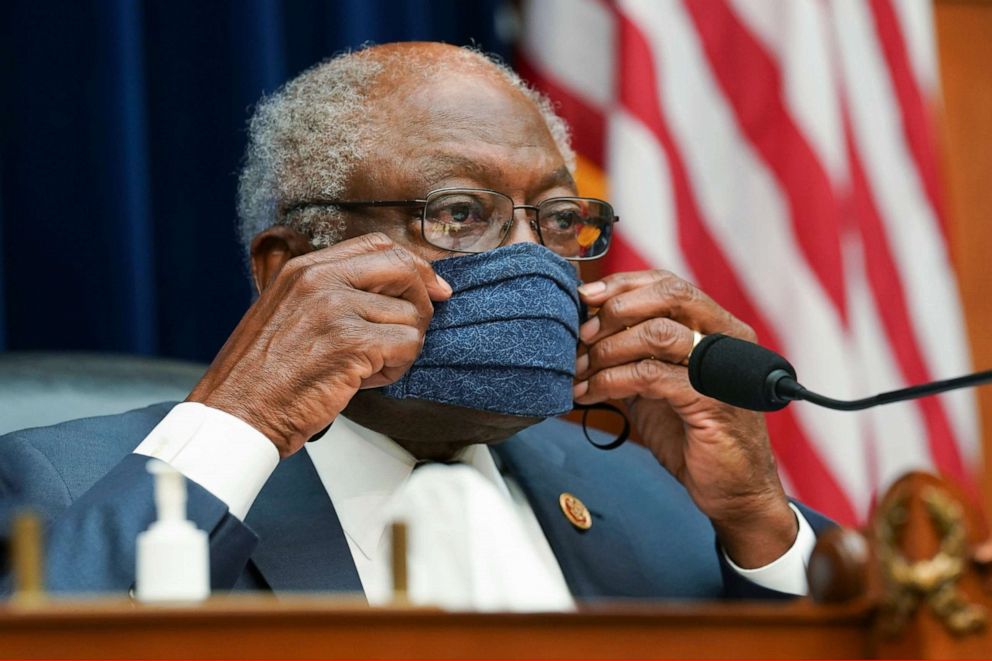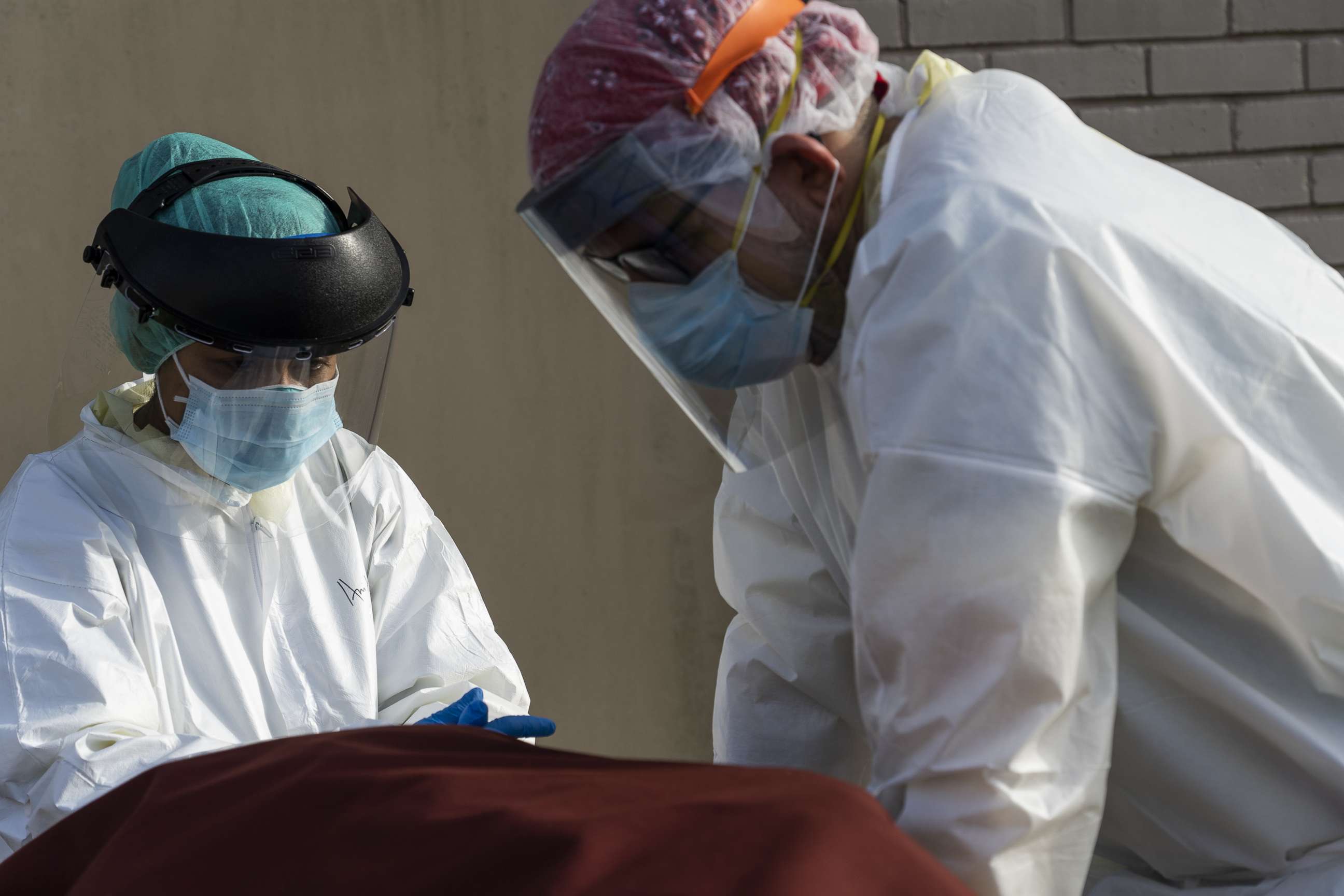Trump administration slow to respond to protective gear shortages: Democrats
Officials told Congress they had limited guidance from the federal government.
The Trump administration was slow to respond to warnings about the country's dwindling supply of protective equipment at the start of the coronavirus pandemic, and failed to prevent ongoing shortages across the country, companies involved in a federal effort to airlift supplies to the United States told House Democrats.
The House Oversight Committee released a memo Thursday summarizing its investigation into Project Airbridge, the Trump administration initiative led by Jared Kushner, President Donald Trump's senior adviser and son-in-law, that used taxpayer dollars to fly supplies to the United States on behalf of industry.
Citing interviews with representatives of six medical supply distributors that participated in the program, the memo depicts a dysfunctional program, and includes claims that the administration wasted valuable time at the outset of the pandemic to stockpile protective gear such as masks, face shields and medical gowns and effectively deliver it to communities in need.
Officials told the committee that "folks in the industry saw that things were getting worse, and their requests for guidance was increasing week by week," according to the memo, adding that "everyone was asking the same questions, but guidance wasn't coming."
Under the Kushner-backed program, the distributors, in exchange for taxpayers footing the bill for the airlifting of personal protective equipment, committed to selling half their cargo to customers in coronavirus "hot spots" designated by the federal government, the memo said.

But the participants were given little guidance on which customers to prioritize in a given area, or how to distribute the other half of their products airlifted to the United States by the federal government, according to the memo. The companies told Democrats they were forced to rely on public information and customer demand to make purchasing decisions, rather than data from the federal government.
"Despite months of effort, there are still severe shortages of PPE and critical medical equipment, and the Trump Administration has no coherent national strategy to address these deficiencies," House Oversight Committee Chair Carolyn Maloney, D-N.Y., said in a statement.
The alleged lack of a coordinated federal response to the nationwide PPE shortages was "one of the biggest missed opportunities," one official told House investigators.
Without the purchasing power and resources of the federal government, states were left to fend for themselves on the global market, leaving many overly reliant on Chinese brokers, industry representatives said.
Instead, the Trump administration allegedly worked to ink a deal with BYD, a Chinese electric car and battery manufacturer, and unsuccessfully pushed distributors to purchase protective gear from the company at higher prices.
The report also raised concerns about ongoing PPE shortages amid an overwhelming domestic demand for protective equipment that could increase as the U.S. hits new records for the daily number of coronavirus cases.

Officials also raised concerns about a global shortage of raw materials used to make protective gear, including gowns.
"Despite months of effort, there are still severe shortages of PPE and critical medical equipment, and the Trump Administration has no coherent national strategy to address these deficiencies," Democrats wrote in the memo.
Rep. James Comer, R-Ky., the top Republican on the panel, criticized Democrats for not including Republicans in the interviews with the medical supply distributors, dismissing the findings as "blatantly one-sided attacks on the president in an election year."
The Federal Emergency Management Agency defended its procurement efforts throughout the pandemic.
"The Supply Chain Stabilization Task Force supplied critical PPE to save lives in our nation, and we worked with Governors from every state and territory to provide PPE that otherwise would not have been available in our fight against this disease," FEMA press secretary Lizzie Litzow said in a statement to ABC News.
Asked about Project Airbridge at a House hearing on Thursday, Rear Adm. John Polowczyk, who leads the task force, said the "legal agreements that we signed with the commercial enterprise allowed us to direct their efforts to where the government felt the highest need was." He also said he had no knowledge of any efforts to pressure companies to buy PPE from Chinese company BYD, and did no business with the firm.
Polowczyk and other top administration officials defended the state of the Strategic National Stockpile, noting that the government would have 50,000 ventilators in reserve by next week.
Rep. Jim Clyburn, D-S.C., citing federal government documents, warned on Thursday that the demand for N95 masks exceeds the national supply of 160 million by roughly 30 million.
"These shortages are getting worse as coronavirus infections skyrocket across the country, driving up prices and demand for PPE," Clyburn, the chairman of the House select committee on the coronavirus, said in the hearing.
Polowczyk said that roughly 70 to 75% of states have at least 30 to 60 days of protective gear in reserve, but added that the federal government still lacked granular state-level data on N95 and PPE supplies -- impacting the federal government's projections on anticipated demand.
As the virus continues to spread dramatically across southern and western states, while slowly climbing upward in nearly every region of the country, administration officials also acknowledged the potential strain on the nation's testing system and supplies, which could complicate efforts to aggressively track and contain coronavirus outbreaks.
"We are not flattening the curve right now, the curve is still going up," Adm. Brett Giroir, the administration official coordinating federal testing efforts, told House lawmakers.
Rep. Steve Scalise, R-La., the top Republican on the select panel, called on Democrats to focus their inquiry on China's role in suppressing information about the initial coronavirus outbreak, and impact on the global supply of protective gear.
"As China was lying to us and the rest of the world, they were hoarding PPE supplies," he said.




